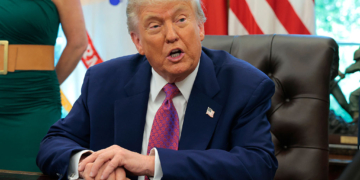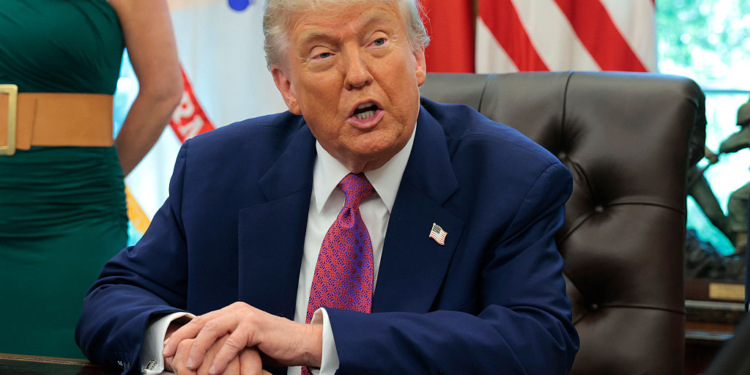On Thursday, the Department of Homeland Security stated that it has started informing hundreds of thousands of Cubans, Haitians, Nicaraguans, and Venezuelans that their temporary legal status to live and work in the U.S. has been revoked, directing them to depart.
According to the Associated Press, officials stated that termination notices are being sent by email to individuals who were granted entry under the Biden administration’s humanitarian parole program.
Since October 2022, around 532,000 individuals from these four nations entered the U.S. through the program, securing financial sponsorships and receiving temporary two-year residency and work permits.
However, DHS said the letters informed recipients that both their legal status and work authorization were revoked “effective immediately.”
It urged undocumented individuals to leave using a mobile application called CBP Home, noting they would receive travel assistance and $1,000 upon arrival in their home country.
The department did not specify how the government would locate individuals once they leave or how the payment would be disbursed.
As part of his presidential campaign, President Donald Trump vowed to end what he described as the “broad abuse” of humanitarian parole — a legal tool long used to allow people fleeing war or political instability to enter the U.S. temporarily.
Trump also pledged to deport millions of undocumented individuals and has actively dismantled legal immigration pathways that allow migrants to enter, stay, and work in the country.
His decision to terminate the parole program for Cubans, Haitians, Nicaraguans, and Venezuelans faced legal challenges but was upheld last month when the Supreme Court ruled in favor of revoking the temporary protections.
Immigration advocates voiced concerns over the administration’s move to send mass deportation notices to more than half a million people.
Krish O’Mara Vignarajah, president of Global Refugee, a nonprofit organization that supports refugees and migrants entering the U.S. said the decision was “deeply destabilizing.”
“These are people that played by the rules… they passed security screenings, paid for their own travel, obtained work authorization, and began rebuilding their lives,” O’Mara Vignarajah said.


























 Continue with Google
Continue with Google